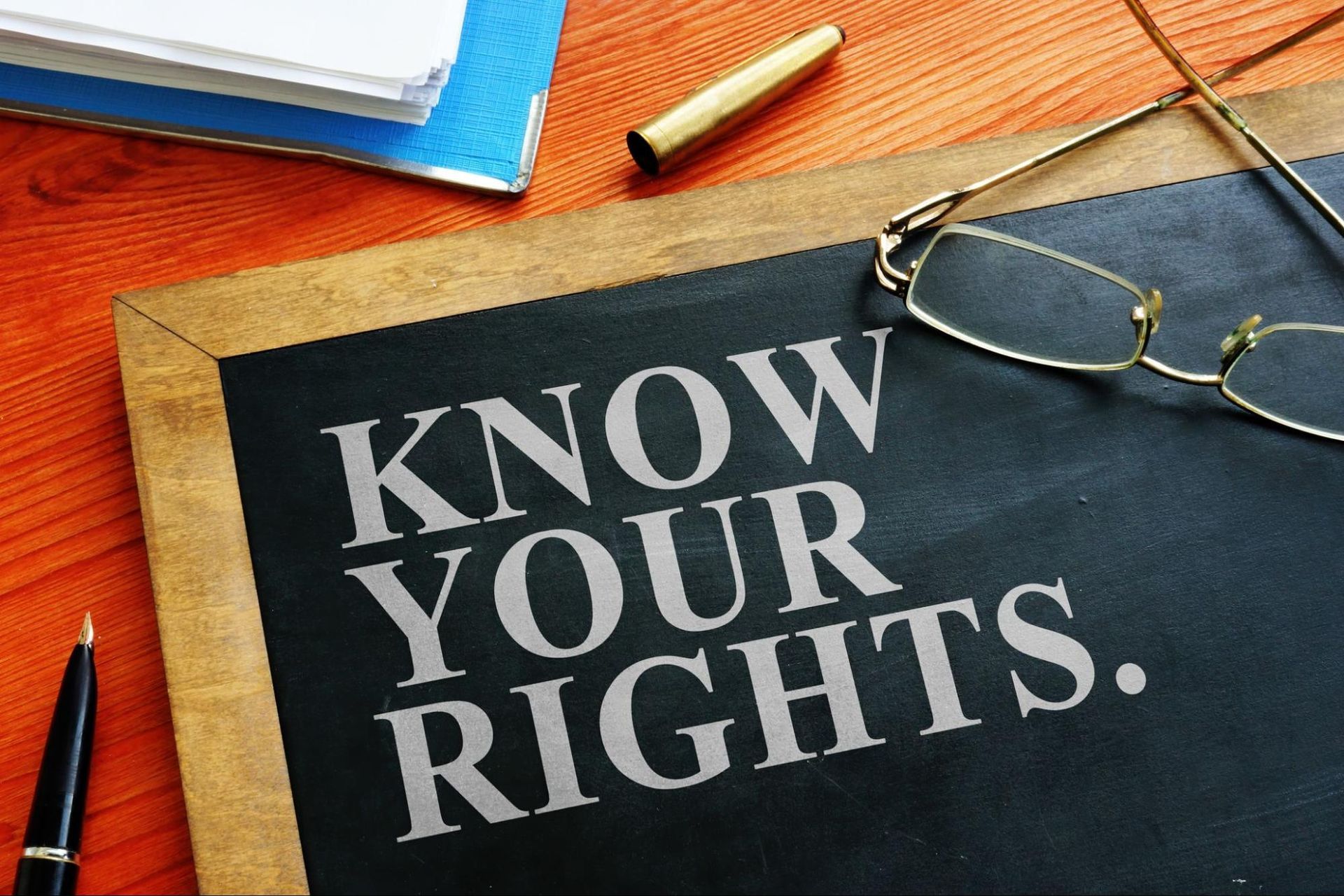Sleep Disorders and Long-Term Disability Claims
Sleep disorders can impact a person’s ability to work. Sleeping difficulties can be a symptom of depression, anxiety or other mood disorders or can be from a serious condition, like sleep apnea.
This blog will discuss:
- The types of sleep disorders (with a focus on sleep apnea)
- The complications of a sleep disorder
- Sleep disorders and disability claims
- Why your claim might be denied
- What to do if your disability claim has been denied
What are sleep disorders?
According to the National Sleep Foundation, there are various sleep disorders that fall under the following categories:
Abnormal sleep behaviour disorders
- REM sleep behaviour disorder (acting out your dream)
- Sleep talking
- Sleep walking
- Nightmares
Source: https://www.sleepfoundation.org/category/abnormal-sleep-behavior
Circadian rhythm sleep disorders
- Shift work sleep disorder
- Non-24 sleep wake disorder (abnormal sleep-wake rhythm – circadian clock is not in-sync with a 24-hour clock
- Delayed phase sleep disorder (when preferred sleep time is delayed 3-6 hours, an inability to fall asleep at your preferred time and wake up at an acceptable time)
Source: https://www.sleepfoundation.org/category/circadian-rhythm-disorders
Excessive daytime sleepiness disorders
- Narcolepsy (excessive sleepiness, falling asleep during normal activities, sleep paralysis, hallucinations, partial loss of muscle control)
- Idiopathic hypersomnia (feeling sleepy even after getting a lot of sleep)
Source: https://www.sleepfoundation.org/category/excessive-daytime-sleepiness-disorders
Insomnia
- Acute insomnia (i.e. brief episode of insomnia due to a stressful event)
- Chronic insomnia (long-term difficulty sleeping, when someone has difficulty falling asleep/staying asleep for a minimum of 3 nights/week, for at least 3 months)
- Comorbid insomnia (occurs with another condition (i.e. anxiety, depression or physical condition like arthritis)
- Onset insomnia (difficulty falling asleep)
- Maintenance insomnia (inability to stay asleep, disturbed sleep and inability to fall back asleep)
Source: https://www.sleepfoundation.org/insomnia/content/what-are-different-types-insomnia
Sleep related movement disorders
- Restless legs syndrome (urges to move the legs while relaxing, worsens with age)
- Periodic limb movements in sleep (uncontrollable repetitive movements in the lower limbs during sleep)
- Sleep bruxism (clenching/grinding your teeth while sleeping)
Sleep related breathing disorders
Sleep apnea is considered to be a serious medical condition because it affects the way you breath when you’re sleeping. Sleep apnea occurs when your breathing is interrupted during sleep, i.e. your breathing starts and stops repeatedly.
There are 2 types of sleep apnea, obstructive sleep apnea and central sleep apnea. Obstructive sleep apnea is the most common type. There is also complex sleep apnea, which is when a person has both types of sleep apnea.
Obstructive sleep apnea occurs when the throat muscles relax and central sleep apnea occurs when your brain doesn’t send the proper signals to your muscles that control breathing.
Source:
https://www.sleepfoundation.org/category/sleep-related-breathing-disorders
According to the Mayo Clinic, the most common signs of both types of sleep apnea include:
- Loud snoring that disturbs the sleep of others, or yourself (more evident in obstructive sleep apnea)
- Episodes of breathing cessation (pauses) that occur during sleep witnessed by another person
- Hypersomnia (excessive daytime sleepiness), that causes you to fall asleep while working or even driving
- Abrupt awakenings accompanied by shortness of breath (more indicative of central sleep apnea)
- Dry mouth or sore throat upon wakening
- Morning headache
- Insomnia (difficulty staying asleep)
- Problems with attention
Who is affected by sleep apnea?
Sleep apnea can affect anyone, including adults and children. Certain factors can make a person more likely to develop obstructive sleep apnea such as excess weight, neck circumference, narrowed airway, your gender (men are more likely to develop sleep apnea, but post- menopausal and overweight women have increased risk), your age (over 60) and family history and race. Other factors include nasal congestion, smoking and use of alcohol, sedatives or tranquilizers.
Risk factors for central sleep apnea include gender (males have a higher risk), age (people over 65), people with heart disorders and stroke or brain tumour.
Complications of sleep disorders
Sleep apnea, for example, can affect a person’s ability to work as it affects a person’s quality of sleep and causes daytime sleepiness. This means that it can affect a person’s ability to drive and stay awake and alert at work. Staying alert at work is important for any job, but it is particularly important when it affects the safety of others, for example, jobs that involve operating heavy machinery or dangerous tools.
Sleep apnea is linked to a number of illnesses including high blood pressure and heart disease, increasing the risk of death.
If left untreated, sleep apnea can affect cognitive function like memory and decision making. A lack of sleep is known to lead to depressed mood and attention difficulties.
Sleep disorders and disability claims
If you work in a safety-sensitive job, a job with heavy machinery or job that requires high levels of concentration and focus, having a sleep disorder like sleep apnea can be dangerous and severely impact your ability to work. Daytime sleepiness can mean you are not alert enough to perform your job duties or react in time for safety-sensitive or urgent situations. Or if your job is long-haul truck driving for example, you could be at risk for falling asleep at the wheel.
If you work in a sedentary position, but your job requires sustained focus and concentration, a sleep disorder can disrupt your ability to do just that. Your job may require you to make important decisions or do complex tasks or calculations and you may be noticing you are having difficulties due to your sleep difficulties.
When you make a claim for short-term or long-term disability, it is important to show the insurance company how your sleep apnea or difficulties sleeping impacts your day to day functioning and would affect your ability to perform your job. Be specific with your restrictions and limitations and symptoms.
Why might my claim be denied?
Your claim for disability benefits could be denied at the outset of the claim, or at some point during the claim. Your insurer might find that while you are unable to perform the duties of your own job, you can perform the duties of another job.
For example, if you worked in a factory, where physical safety of yourself and others is a concern, your insurer might agree that you can’t return to this position, but may say you can work in a sedentary position like at a call centre or somewhere where safety is not an issue and a moderate amount of concentration is not required.
Other commons reason insurers deny claims is due to lack of medical evidence to support ongoing limitations and restrictions, that you are not under the care of an appropriate specialist and are not following the standard recommended treatment plan.
What should I do if my disability claim is denied?
Even if your claim has been denied, it is important that you continue to seek ongoing treatment and follow the treatment plan prescribed to you.
You should keep copies of all documents sent to you by the insurance company and keep records of all conversations you had with the insurance company as well. This information can be provided to your lawyer and help them understand what happened with your claim.
It is important to remember that you can fight the insurance company’s decision to deny your claim. When you consult a lawyer, you will be informed of your rights and obligations as an insured person and how long you have to sue your insurer (known as the limitation period). You should consult a lawyer as soon as possible to make sure you start a lawsuit against your insurance company before the limitation period is up.
Our firm offers a free initial consultation that can be arranged at a time that is convenient for you.
We offer a free initial consultation that can be arranged at a date and time of your choosing and at your convenience.
Recent posts from our Knowledge Centre


- This blog is for informational purposes only and is not meant to substitute legal advice. Please read our disclaimer for further information.
- All of our lawyers are licensed by The Law Society of Upper Canada
- Office in Toronto and able to represent people in the province of Ontario
No Upfront Legal FeesNo Bad Questions
Footer
Thank you! Your request for a free consultation has been sent to our legal team.
We will do our best to contact you within 24 hours. We look forward to speaking with you!
Please try again later
1120 Finch Avenue West, Suite 500
Toronto, ON Canada M3J 3H7







